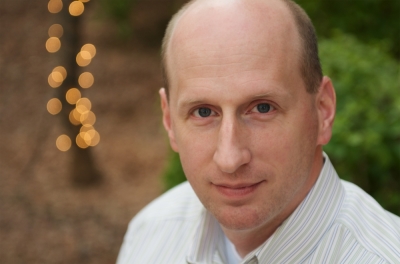Born This Way? Maybe Not

A changing sexual revolution demands changing tactics. Remember all that talk for the last decade that sexual orientation is like skin color — genetic and immutable? Well, the science not only looks iffy, it was never solid.
From the Guardian:
With each study, confidence in the gay community about a genetic link to our sexuality has become stronger. It has become generally assumed that a gay gene must exist. But take look at the actual science, and the history of sexuality, and you will find serious problems with the theory.
For example:
All of the recent studies searching for a gay gene have significant issues. For example, as Samantha Allen notes, biologist Anne Fausto-Sterling "tore LeVay's original study to shreds, noting that there is substantial overlap between the cell cluster size ranges of gay men and straight men in his sample." There has been significant criticism in scientific fields over Sanders' study as well, with many scientists arguing the results were not "statistically significant" (while that may sound like a mild criticism that's a big deal in the science community). While news headlines promote each study as a "confirmation of the gay gene", the reality is very different.
It turns out that culture matters, a lot.
These issues highlight a fundamental problem that goes well beyond the peculiarities of these particular studies. Scientists are asking whether homosexuality is natural when we can't even agree exactly what homosexuality is. Homosexuality, as with all sexualities, is a social construction.
What does that mean? In his book The History of Sexuality Michel Foucault charted a major shift in our construction of sexual desires over the past few centuries. There are two important changes. First, we have developed the idea that our sexual desires reveal a fundamental truth about who we are, and second we have created a conviction that we have an obligation to seek out that truth and express it. As Jesi Egan argues, "within this framework, sex isn't just something you do. Instead, the kind of sex you have (or want to have) becomes a symptom of something else: your sexuality." (Emphasis added).
From the very beginning, the sexual revolution has been about sexual liberty, not identity, with the language of identity adopted as a political tactic — not a reflection of scientific truth. But as the debate moves on from gay marriage, the language of identity gets increasingly restrictive. After all, while a man may feel internally confused about his gender, he doesn't have to get breast implants. The bottom line is that sexual expression is always about human choice, and the conversation was inevitably going to move on past the mythical gay gene:
Queer relationships should be embraced, not because homosexuality is genetic, but simply because there is nothing wrong with them. While gay gene arguments may seem like a way to push the rights agenda forward it can actually have the opposite effect — limiting the debate solely to those traits and behaviours seen as genetic. There is no genetic evidence for much of our behaviour. Does that mean, even when we are not creating harm, we have less of a right to engage in those acts than others?
But if we're finally getting honest — and labeling sexual acts as moral choices — then there's less grounds for punishing those people and institutions who make different moral choices, like Christian colleges, student groups, and business owners. So we'll likely see the debate flip back and forth, depending on the needs of the moment. Sexual identity is immutable and genetic when it comes time to strip tax exemptions. Sexual expression is a happy choice when it comes time to push to the edges of the sexual frontier. The principle is clear: Choose whatever tactic or argument you'd like — so long as sexual liberty wins.
This column was originally published in National Review.





























